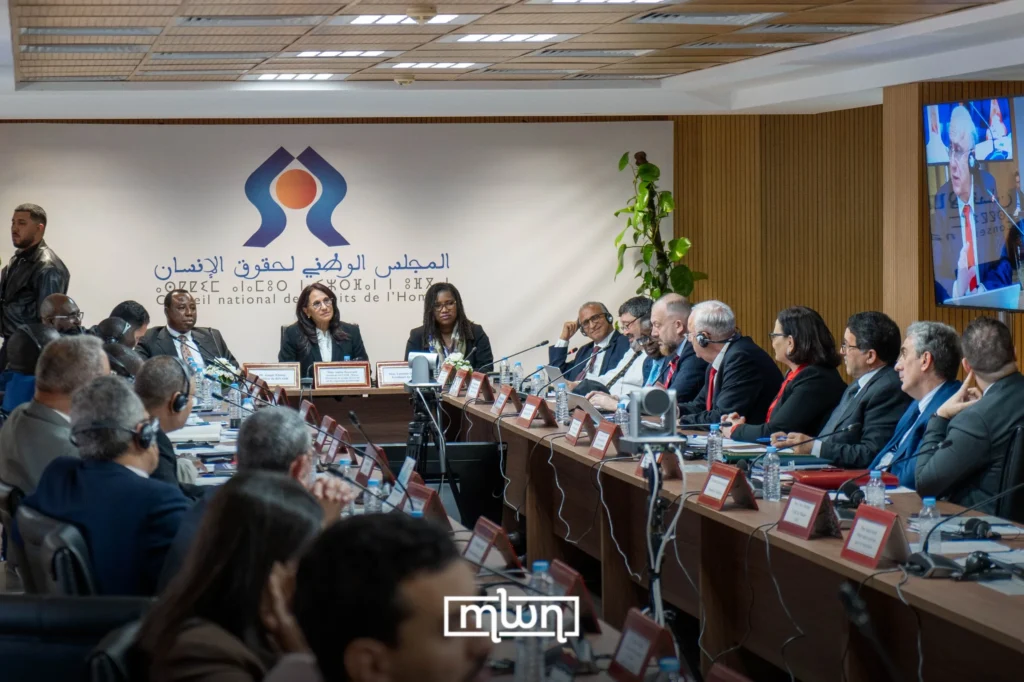Rabat – The National Human Rights Council (CNDH) had held a round table in Rabat this afternoon to open a new chapter in the way migration is ruled throughout Africa.
In cooperation with the UN Committee for Migrant Workers (CMW) and the network of African National Human Rights Institutions (Nanhri) of the event presented General comment No. 6, a new interpretative text that encourages states to put human rights at the center of migration policy.
This new comment comes from the international agreement on the protection of the rights of all migrant workers and members of their families who were adopted in 1990, as well as from the newer global compact for safe, ordinary and regular migration (GCM), which was adopted in Marrakech in 2018.
Although they differ in the legal status, the convention is binding, while the GCM is not, the two framework conditions reflect a common purpose to ensure dignity, fairness and legal protection for people in motion.
This roundtable gathers government officials, legislators, members of the judiciary, UN representative, delegated by the African Union, civil society actors and national human rights institutions from all over the continent.
Together, take a closer look at how the general comment can help bridge the two global instruments and offer states that want to introduce more humane, coherent migration strategies.
Timing is critical. The African continent has a significant increase in regional migration, with over 29 million people within its limits. The fact that 86% of migrants in Africa come from the continent itself are often not mentioned in broader international debates. The general comment urges guidelines that reflect this reality and support African solutions.
Morocco promotes migrant rights
At the center of today’s meeting there was a call to organize legal framework conditions and listen to the experiences of migrants. The text confirms the right to education, access to justice, freedom of expression, decent work and protection when returning. It also underlines the role of national human rights institutions in preventing racist and ethnic profiles and in defending legal identity and recognition.
Morocco has played a central role in the design of the general comment. The CNDH organized several consultations that led to its final draft, including an important meeting in Agadir. The Council also worked with groups of IBN ZOHR University and civil society groups to organize workshops and discussions that contributed to forming the regional understanding of the document.
Amina Bouayach, President of Moroccos Cndh, unveiled The highlight of the institution at the height of the extensive work during the migration seat on a high level in the CNDH headquarters. “This work required more than two years of efforts by the members of the committee to develop general comment No. 6,” she said at today’s roundtable with unus and African human rights facilities.
“Today we present this observation to intensify and expand the protection for migrants and their families on the territory of a state,” she added. As chairman of the Migration Working Group of Nanhris Migration, Bouayach described the role of CNDH in the bridging of legal framework conditions that affect millions of all over Africa.
In the meantime, Joseph Whittal, chairman of the Nanhri, explained the upcoming partnership during his visit to the CNDH headquarters in Morocco.
“We are now discussing the Memorandum of Understanding, which will lead to how Nanhri will work together with the UN Committee in a practical way,” he said.
The Ghana Commissioner found that this cooperation aims to protect the 29.2 million international migrants of Africa through concrete measures that match general comment No. 6.
“The working group led by Morocco, headed by Moroccan President Amina Bouayach, invited the committee of employees from migrants to participate in these discussions,” said Whittal, emphasizing the central role of CNDH in this continental initiative.
One of today’s key Results is the formal signing of a cooperation agreement between CMW and Nanhri, one step forward when building stronger partnerships to protect migrants across Africa.
By placing rights over the rhetoric and bringing in African voices in the center of the debate, the round tablue reflects a growing consensus: migration cannot be treated solely by border control. It requires fairness, respect and guidelines based on the realities and challenges of people.





